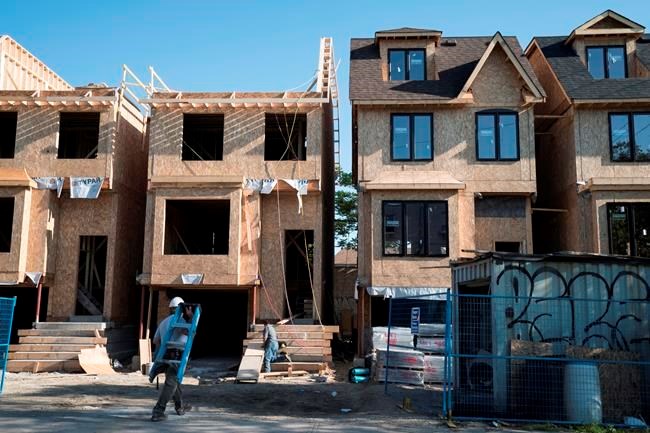British Columbia’s high housing prices are harmful to the public interest, a BC Supreme Court judge stated in a ruling that dismisses an injunction application against the speculation and vacancy tax that aims to address the affordability crisis.
In a ruling dated April 16, Justice Janet Winteringham tossed out the joint petition of nine individuals to restrain the provincial government from enforcing the tax.
The judge accepted “with little hesitation” the provincial government’s position that the harm to government and the public interest easily outweighs the harm alleged by the petitioners.
The judge described the NDP government’s public interest argument for the tax as “concrete, tangible and compelling.”
The government posited in court that housing affordability is “the most pressing issue facing the 21 municipalities that comprise Metro Vancouver.”
The government argued, “Hundreds of thousands of British Columbians are negatively impacted by the housing affordability crisis. Surveys show that 45 per cent of Metro Vancouver residents are seriously considering leaving Metro Vancouver because of the high cost of homeownership, and that 83 per cent of the renters consider rental prices to be unreasonably high.”
The government also noted in its submission that vacancy rates have improved since the tax’s imposition. The tax also represents an estimated $185 million revenue stream and “administrative chaos” would ensue if the injunction were granted.
The nine petitioners had sought an interlocutory injunction to suspend the tax before challenging the tax on constitutional grounds in a future court proceeding. Hence, the judge’s remarks on the evidence are considered preliminary.
The petitioners needed to establish three things for an injunction: that there was a serious question concerning the constitutionality of the tax; that they would suffer irreparable harm should the injunction be denied; and that the public interest aligns with their own.
On the question of public interest, “the harm described and the evidentiary record the petitioners present, is largely speculative and based on deficient financial information,” ruled Winteringham.
In other words, they didn’t prove scrapping the tax would be in the public interest, if not only their own interest.
The judge suggested the petitioners may have put the horse before the cart in their injunction application, considering they did not yet receive their 2019 tax assessment.
“With respect to proof of irreparable harm, the petitioners have not yet received their tax assessments under the [tax], although those assessments will be delivered shortly.”
And, “For the most part, the petitioners attest that they cannot afford to pay the Tax but have not provided any evidence regarding their individual financial circumstances,” wrote the judge.
With respect to there being a serious question over the constitutionality of the tax, “I agree with the respondent (government) that the petitioners’ Charter analysis is flawed,” stated the judge.
“The submissions as framed could very easily be viewed as a claim for protection of economic rights – something the drafters of the Charter specifically, and with intention, excluded. … I question the strength of the constitutional challenge, as framed and based on the evidence tendered,” wrote Winteringham.
Addressed were the petitioners’ claims the tax violated equality rights, indirect taxation, liberty and security of the person and mobility.
Winteringham acknowledged “the difficulties of assessing the strength of a constitutional case in interlocutory applications,” however the weakness of the petitioners’ case outweighed the risks of granting relief.
Notably, the petitioners had argued that the definition of “untaxed worldwide earner” is discriminatory, but the government responded that the only distinction is based on where the family reports income for a calendar year. “The untaxed worldwide earner provisions do not draw a distinction on the basis of sex, or any other protected ground” under the Charter, argued the government.
The injunction was sought pending a full hearing on the constitutionality of the challenged legislation, and the parties agreed that the full hearing could not be accomplished before the next election. This delay provided even more pause to the judge.
“Candidly, the petitioners admitted that they were not seeking an immediate hearing date. Rather, they expected to proceed with class certification issues and then take steps to schedule the matter for hearing,” wrote Winteringham.
“In circumstances where the petitioners have not booked hearing dates for the petition or outlined a schedule of steps by which they propose to bring the petition, I have grave concerns about the granting of the extraordinary remedy sought here.”
Furthermore, if the tax were ever deemed unconstitutional, the judge noted any payments could be refunded.
With various exemptions, the tax is largely targeted at owners of unoccupied homes and satellite families who report less than 50 per cent of their worldwide income in Canada. The rate is two per cent of a property’s value for foreign owners of homes that are not rented to a primary resident of B.C. as well as for satellite families. Canadian citizens or permanent residents of Canada who are not members of a satellite family and who do not reside in B.C. but leave their properties unrented for more than half the year are charged 0.5 per cent.
The tax also serves to establish a confirmation of residency for tax purposes, which can assist the federal government with reporting of income taxes and/or issuance of social safety net benefits, such as healthcare.
The next cycle of tax administration was scheduled to commence in January 2020 with mass mailouts to 1.6 million property owners. The government submitted to court that “extensive preparations have been made for the upcoming administration cycle, including entering into a multi-million-dollar contract with a third-party contractor to set up an SVTA-related call centre.”



